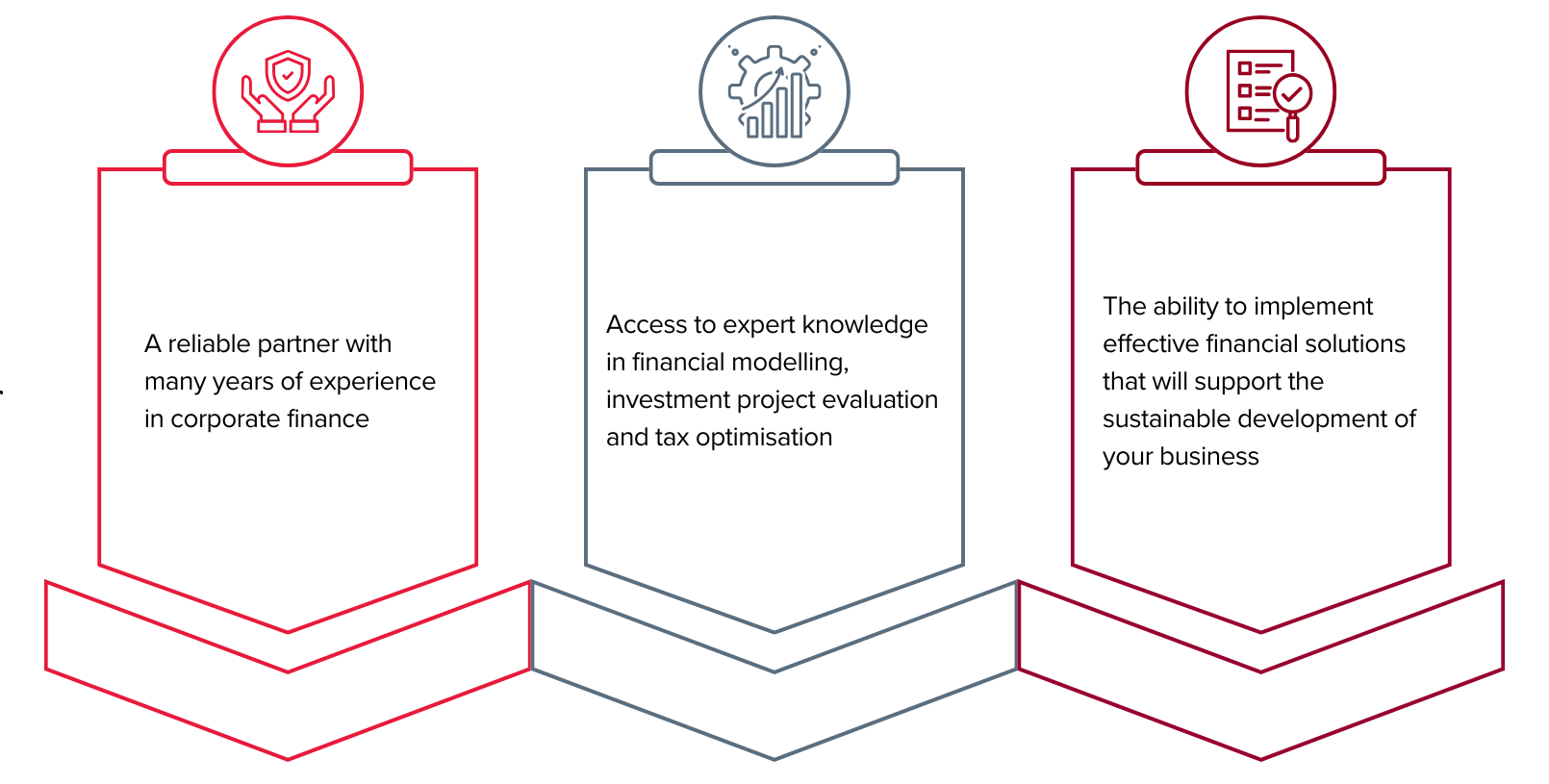
Valeriy Afanasyev
Valuation of business and financial modelling department specialises in valuation of business, development of financial models and analysis of the company’s efficiency to achieve their high economic performance.
Main activities of the department:
1. Valuation of business:
2. Financial modelling:
3. Evaluation of investment projects:
4. Corporate finance advisory services:
5. Analysis of industries and markets:
6. Tax structuring:
Each of these areas involves the use of modern financial analysis tools, a deep understanding of the specifics of the client’s business and close interaction with the client.
BDO in Ukraine experts not only provide valuation of business, financial modelling and market analysis services, but also offer customised solutions to solve complex issues:
We ensure transparency, accuracy and full compliance with international standards such as IFRS, IAS and NAS, while also by considering local requirements. Our approaches are aimed at creating a sustainable basis for strategic decision-making.
By contacting BDO in Ukraine, you get:
• A reliable partner with many years of experience in corporate finance
• Access to expert knowledge in financial modelling, investment project evaluation and tax optimisation
• The ability to implement effective financial solutions that will support the sustainable development of your business.

FAQ (Frequently Asked Questions)
The service includes business valuation, development of financial models, performance analysis and preparation for mergers and acquisitions (M&A), restructuring, or investment attraction.
Business valuation is performed to support mergers, acquisitions, initial public offerings (IPO), company sales, financial planning, and investment attraction.
Both tangible assets (e.g. real estate, equipment) and intangible assets (e.g. brand, patents, licenses) are taken into account.
Financial modelling refers to the process of creating financial models to evaluate business performance, forecast cash flows (DCF), and analyse strategic scenarios.
Investment projects are analysed using indicators such as NPV, IRR, and PI, which help determine the investment feasibility and identify the most promising options.
It includes support during M&A transactions, due diligence, business valuation for capital raising, and development of recommendations to enhance company market value.
Valuation is conducted in accordance with international standards such as IFRS and IAS, as well as Ukrainian NAS, with consideration of local requirements.
Valuation for tax purposes is focused on optimising the tax burden through the application of modern tax planning strategies.
Clients benefit from access to deep expertise in corporate finance, financial modelling, investment analysis, and tax optimisation, along with comprehensive support in implementing solutions that foster sustainable business growth.
Glossary